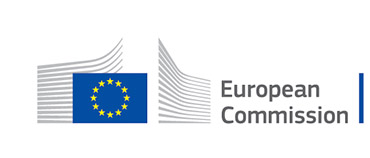|
|

|

|
| |
22 January 2024
|
|

|
Unit E1
Disaster Risk Management
|
|
|
|
|
|
|
|
|

|
|

Clearly the areas where we work are high on the list and will likely be prominent priorities for the new Commission too.
That is the context for our reflections on the 2025-2027 work programme that kicked off last week. With all team leaders, we're looking at strengths and weaknesses of our work and opportunities and threats that can help us decide where the priorities lay and where we can reduce efforts.
This week I attended the kick-off meetings of GHSL, Droughts and CEMS On-Demand Mapping. Thomas and his team plan for several important data releases this year, as well as a dense training programme and scientific publications. The main flagship report will be the Atlas of the Human Planet. Andrea and his team are heavily investing in AI (did you like the game at the Dir E Staff Assembly?) to improve forecasting and characterisation of droughts. This will improve the toolbox available to help Member States tackle droughts and is expected to be a key contribution to the Water Resilience initiative of the Commission. At global level, the flagship deliverable will be the Global Drought Risk Atlas, to be released at COP16 of UNCCD. Jean-Francois and his team are continuing to increase efficiency of the on demand mapping services with bleeding edge ICT solutions and better management of contractors. Key, though, are the innovation workshops planned for this year, most likely on artificial intelligence and civil aviation. Also watch out for the new CEMS landing page for all 5 components. The first brainstorming on the CEMS Assembly points to an on-line event in May featuring a selection of use cases.
Let's discuss this and more in the Unit meeting later this week. Please try to be physically present, as also our Director will attend.
Have a good week!
|

|
|
|
|
|
News from the teams
|

|
|

What a week we it has been! We organised a AI-game on unsupervised learning during the Directorate E staff assembly, which was a lot of fun as shown in the photos below.
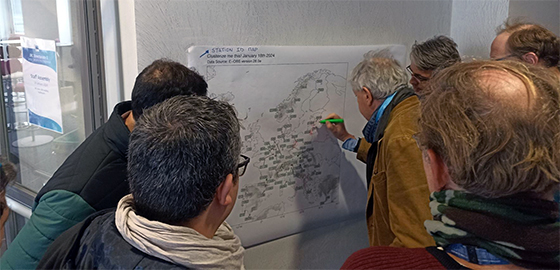
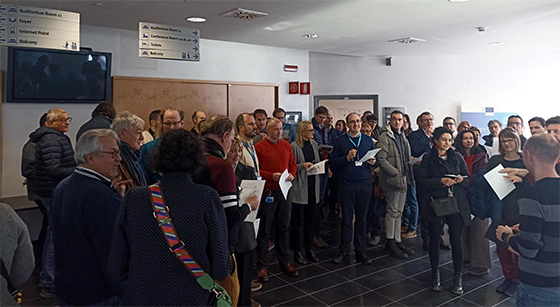
We also took part in the SMM discussing on financial and climate risks and discussed with H2020-CLINT partners on enhancing the prediction of heatwaves. Then Arthur presented the first outcome of the AIACS project on AI-enhanced climate services at an ER seminar. On top of all that, we met the partners of the EDO Framework Contract in a 3-day meeting.
|

|
|

|

|
|

Last week, Guy Schvitz from the Science4Peace team of our DRMKC met stakeholders at the EEAS, FPI and Commission DGs to discuss collaboration on conflict monitoring and forecasting tools under the new Administrative Agreement (2024-2025), as well as communication and outreach within the EU.
Our RDH project team met up with World Bank, EMDAT and Samuel Rufat to discuss the Risk Data Library Standard, the integration of EMDAT into the Loss Data repository of RDH and the validation of the RDH Vulnerability Framework
Christina participated in the JRC's views of the future: on Securing data as a form of strategic autonomy for the EU. The expert group will produce a short note for the new President outlining high-impact emerging and potentially disruptive policy issues that should matter to the new Commission.
JRC E.1 contributed to the preparation of the presentation and the note on actuarial expertise (as a contribution from portfolio 26) and joined the Senior Management Meeting where the note was presented.
We also had a meeting with MapAction, CMCC, and Union Pour la Méditerrannée on the update of INFORM subnational model for Lebanon.
Additionally, we produced the summary factsheet of the 7th DRMKC annual seminar (see below) and this week will publish the conference proceedings, detailing the main outcomes of the event that took place on 21 November in Brussels.
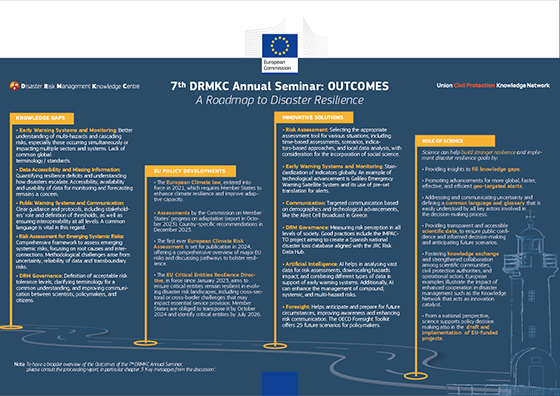
|

|
|

|

|
|

In the context of the Israel-Gaza war and mounting regional tensions, we have been monitoring security events in the Middle East. We released two maps: one detailing the increasing attacks by Iranian-backed Houthis on commercial ships in the Red Sea and joint retaliatory strikes by the US and UK in Yemen. The second map provided an overview of the overall security situation in the Middle East, including Iranian strikes in Iraq's Kurdistan, Northern Syria and Pakistan.
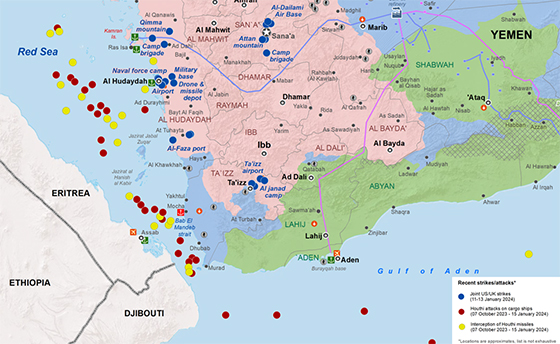
We also produced a map showing the volcanic activity in the Reykjanes Peninsula, highlighting major events and their humanitarian impact, along with the UCPM and national response. This marks the fourth Daily Map produced by the ECML mapping team on this event.

Marzia, together with Christina Corbane, participated in the JRC's views of the future: on Securing data as a form of strategic autonomy for the EU. The expert group will produce a short note for the new President outlining high-impact emerging and potentially disruptive policy issues that should matter to the new Commission.
Additionally, we had a series of meeting as outlined below:
- We met with WFP to plan the next steps for our collaboration on anticipatory action for Tropical Cyclones, aiming to implement meteo “disturbances” information (i.e. meteorological systems not yet recognised as Tropical Cyclones) in GDACS for testing by WFP users.
- We met with ECHO to prepare for presenting the Global Situation System to the Cabinet of Commissioner Janez Lenarčič in February.
- We collaborated with JRC F.2 colleagues to fine-tune their contribution to the UNDAC Handbook Update, with a chapter on hazard summaries curated by the ECML, and contributions from other JRC Units and key stakeholder beyond JRC.
- We participated in the EIOS Interservice meeting with HERA, ECDC, SANTE, ECHO, INTPA, EEAS, EFSA to update on the initiative ahead of next EIOS Coordination Group meeting, planned in Singapore on 30-31 January.
- Marzia and Luigi, together with Giuliana from DRMKC, upon request of SecGen, Digit, and HERA, met with colleagues from these entities to share information on the DRM ontology that they initiated in 2021. The plan for the ECML is to resume this work, due to user interest. The focus will be on terminology related to the preparedness and response phases of the DRM.
|

|
|

|
|
|

|

|
|

Our team is very proud to share that we have published a paper in Nature Scientific Data that describes the Urban Centre Database: The Multi-temporal and Multi-dimensional Global Urban Centre Database to Delineate and Analyse World Cities (https://doi.org/10.1038/s41597-023-02691-1).
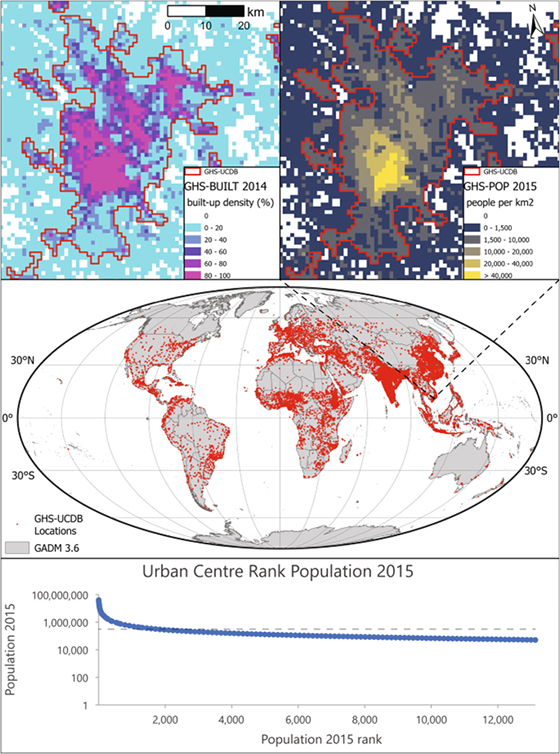
In addition, we discussed with the INE, the national statistical office of Chile, regarding the best approach for replacing the national urban-rural definition with the Degree of Urbanisation.
Furthermore, we received a first set of promising samples from the Copernicus GHSL consortium for the next updates of the GHSL data.
|

|
|

|

|
|

Our Mapping team provided emergency support to the French authorities following the landfall of the BELAL-2024 tropical cyclone in Reunion island (EMSR714). Apart from ordering satellite images, we offered the French authorities the possibility to acquire drone images for a more detailed damage assessment.
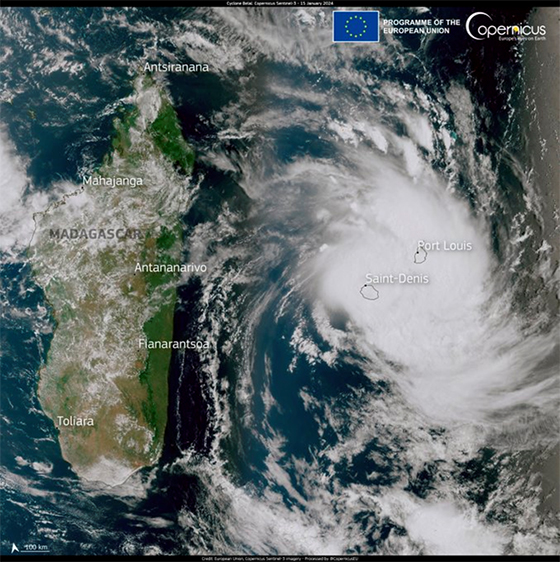
Furthermore, we provided post-disaster recovery information for flood delineation and impact assessment for the flood in the Thessaly Region, Greece (EMSN184).
Discussions are currently ongoing with ESA to improve the provision of EO data, aiming for faster delivery and simplified procedures.
|

|
|

|

|
|

Last week we were working and discussing with CNECT, ECHO and the USA partners (FEMA) on a project proposal for the use of AI in wildfire crisis management.
We also discussed with ECMWF regarding the contribution on wildfires in 2023 to the European State of Climate (ESOTC2023) report, which will be done jointly with WMO.
Furthermore, we met and discussed with INTPA and the Member States agencies on the implementation of the Amazonia+ program on support to wildfire management in Latin America and the Caribbean for the period 2023-2027.
|

|
|
|
|
|
Welcome to newcomers
|

|
Laura Acquafresca
|
|
Hello! I'm Laura Acquafresca, and I recently joined the Drought team (yes, it sounds a bit like an oxymoron! 😊). With a background in geological sciences and technologies, specialising in GIS, Remote Sensing and hydrological modeling, I'm not entirely new at the JRC, as I had worked in D5 for the last four years. Outside the scientific world, you can find me on sandy beach volleyball courts, skiing or snowboarding on slopes, or gracefully gliding on ice rinks. I'm looking forward to meeting you, perhaps at the coffee machines, for sharing ideas.
|
|
|

|
|
|
|
|
Help our colleagues create a greater buzz with their posts by liking, commenting and sharing them!
|
|
|
|
|
|
In 2023, the EU Civil Protection Mechanism (UCPM) recorded 60 activations (excluding conflict) with #wildfires topping the list. This year marked the occurrence of the...
|
|
|
|
|
|
|
|
|
Our latest Science for Policy brief is out! 📊
The theme? EDORA of course..! 😏
It provides a wrap-up of the project in case you missed it: https://lnkd.in/dREnFqDv
|
|
|
|
|
|
|
|
|
|
|
Other interesting posts on disaster risk management
|
|
|
|
|
|
🥵Drought in the Po River Valley : the alarm bell for Europe !
🎥Last week-end, our team was in Italy to interview Alberto Montanari, Professor of Hydrology at the University of Bologna, and Andrea...
|
|
|
|
|
|
|
|
|
In recent weeks, many parts of #Europe have been affected by severe #flooding 🌊
The consequences of such events can be far-reaching, affecting communities, infrastructure, and the environment.
|
|
|
|
|
|
|
|
|
|
|
The European Commission is committed to personal data protection. Any personal data is processed in line with the Regulation (EU) 2018/1725. Please read the privacy statement.
|
|
 |
|
